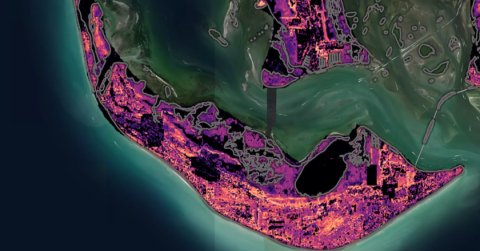
NASA has unveiled “Earth Copilot,” an innovative AI tool developed in collaboration with Microsoft. This new tool, developed using Azure OpenAI Service, transforms complex data into insights that anyone can access through natural language.
Designed to be user-friendly, Earth Copilot allows climate scientists, educators, policymakers, and emergency responders to analyze impacts of wildfires, monitor climate change, and track air quality through natural language queries, eliminating the need for complex coding skills.
This initiative marks a significant advancement in making data more accessible and empowering various sectors to make informed decisions towards building a resilient and healthier future.
What does this mean to anyone who is curious to know the implications of this launch? In a blog authored by Tyler Bryson – Corporate Vice President, US Health & Public Sector Industries, it states that “every day, NASA’s satellites orbit Earth, captures a wealth of information that helps us understand our planet. From monitoring wildfires to tracking climate change, this vast trove of Earth Science data has the potential to drive scientific discoveries, inform policy decisions and support industries like agriculture, urban planning and disaster response.”
The blog further states, that navigating over 100 petabytes of collected data can be challenging, which is why NASA has collaborated with Microsoft to explore the use of a custom copilot using Azure OpenAI Service to develop NASA’s Earth Copilot, which could transform how people interact with Earth’s data.
Earth Copilot enables users to interact with NASA’s data repository through plain language queries, questions such as “What was the impact of Hurricane Ian in Sanibel Island?” or “How did the COVID-19 pandemic affect air quality in the US?” AI will then retrieve relevant datasets, making the process seamless and intuitive.
NASA embarked on a mission to make its data more accessible and user-friendly. Through NASA’s Office of the Chief Science Data Officer, the agency seeks to democratize data access, breaking down technical barriers to empower a diverse range of audiences, from scientists and educators to policymakers and the general public.
The collaboration between NASA IMPACT and Microsoft has resulted in a solution that democratizes access to spaceborne data, enabling a broader range of users to engage with NASA’s science data. This has significant benefits for the scientific community, as researchers can now spend less time on data retrieval and more on analysis and discovery. For example, climate scientists can quickly access historical data to study trends, while agricultural experts can gain insights into soil moisture levels to improve crop management.
Educators and teachers can use real-world examples to engage students in Earth Science, fostering curiosity and encouraging the next generation of scientists and engineers. Policymakers can leverage the data to make informed decisions on critical issues like climate change, urban development and disaster preparedness, ensuring they have the most accurate information at their fingertips.
The development of this AI prototype aligns with NASA’s Open Science initiative, which aims to make scientific research more transparent, inclusive and collaborative. By removing barriers to data discovery, NASA and Microsoft are setting the stage for a new era of discovery, where insights are not confined to a select few but can be explored and expanded by anyone curious about the world.
At the moment, the NASA Earth Copilot is available to NASA scientists and researchers to explore and test its capabilities. Any responsible deployment of AI technologies requires rigorous assessments to ensure the data and outputs cannot be misused. After a period of internal evaluations and testing, the NASA IMPACT team will explore the integration of this capability into the VEDA platform.





